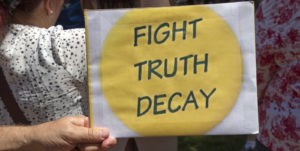“What is truth?” — Pontius Pilate (John 18:38)
Dietrich Bonhoeffer, in a famous essay called “What Is Meant by ‘Telling the Truth’” claimed that truth telling is “expressing reality in words.”
Bonhoeffer’s shorthand definition reflects the commonsense, most familiar understanding of truth: Truth is correspondence with reality, or more formally, truth is the property of being in accord with reality or fact. This is called the “correspondence theory of truth.”

(Bigstockphoto)
If we accept the widely agreed claim that telling the truth is a prima facie moral obligation (binding upon us unless proved otherwise due to extenuating circumstances), this must mean that it is morally significant that people offer statements that correspond with reality. We are so dependent on reliable truth telling that we almost never talk about the issue — unless a problem arises.
Philosophers have offered several complementary or even competing approaches to the correspondence theory of truth. I am a social ethicist rather than a philosopher, so this is rough and ready, but here goes:
Pragmatic theories of truth suggest that truth is that which is verified when tested and/or put into practice. For pragmatists, truth is not once for all established but is instead provisionally verified or disconfirmed by constant examination, trial and error, and, when necessary, self-correction. It isn’t so much that truth corresponds with reality but instead that truth bears out or works when tested. This theory suggests that truth is the hard-won, if provisional, achievement of a community of rigorous inquiry. Think, for example, of the scientific inquiry process required to properly understand, describe, treat and vaccinate against the COVID virus.
Coherence theories of truth move the focus from a single truth claim to a broader system. Statements are true insofar as they cohere and are interdependent with others within a broader whole. This allows statements to be evaluated for their truthfulness within the context of the system within which they are made. Thus Christian theological claims can be judged more or less “true” insofar as they “cohere” with other statements within the broader “language game” of Christian theology.
“’What is true is what we say is true’ is one of the signature moves of most tyrants.”
Constructivist theories of truth suggest that in at least some arenas of life, truth is a social construct, linked to power. What is “true” is that which has been constructed as true by those who hold power. The familiar expression, “History is written by the winners” gets at this concept. “What is true is what we say is true” is one of the signature moves of most tyrants.

David Gushee
Several approaches, which I will label “skeptical theories of truth,” all have in common that they (attempt to) poke holes in the primary theory that truth is that which corresponds with reality.
For example, the performative theory says that when we say that something is true, we are merely performing a speech-act that signals our endorsement of another statement. So, if someone says, “It’s true that the Democrats stole the election,” what they are doing is performing the act of endorsing someone else’s claim to this effect.
Similarly, the consensus theory of truth simply says that truth is whatever a particular group agrees is true.
Deflationary and redundancy theories go even further, basically saying that truth claims do not denote a real property out there in the world or are simply redundant reinforcements of assertions. To say, “It is true that it is cold outside” is simply to assert that “it is cold outside.” To add the phrase “it is true” is merely expressive, persuasive or a matter of emphasis.
Finally, pluralist theories of truth suggest that different types of propositions might relate to different kinds of truth. In other words, depending on the arena within which one is operating, correspondence, pragmatic, constructivist, coherence or other approaches might make the most sense.
“A truthful statement corresponds with reality.”
My “concluding unscientific postscript” to this discussion is that for most everyday purposes the correspondence theory of truth offers what we need. A truthful statement corresponds with reality. “Truth is the agreement between the intended subject matter of a word or a sentence … and the nature of the fact to which the word or sentence refers” (Interpreter’s Dictionary of the Bible).
I do see that pragmatic theories of truth seem especially applicable to scientific processes; constructivist theories do accurately describe constant, unjust uses of power over others; coherence theories make sense for many theoretical and game realms; and skeptical theories capture certain mainly peripheral aspects of how humans talk.
Overall, it comes down to this: When people’s statements routinely do not correspond with the facts to which their words refer, and they know this to be true, they are not just lying, but they have become liars.
When people sink so far as to become liars, they routinely violate a crucial moral rule recognized across time, cultures and religions, they damage and threaten the survival of their important relationships, they harm those to whom they lie, and they reveal a substantial flaw in their character.
We simply cannot grow casual, or cynical, about routine lying in any community that we care about. This should not have to be said, because it is so obvious. But here we are.
The Bible has its own unique vocabulary related to truth. That is where I will go next.
David Gushee serves as Distinguished University Professor of Christian Ethics and director of the Center for Theology and Public Life at Mercer University. He is the past-president of both the American Academy of Religion and Society of Christian Ethics. He is an author or editor of 25 books. His most recognized works include Righteous Gentiles of the Holocaust, Kingdom Ethics, The Sacredness of Human Life, and Changing Our Mind. He earned the Ph.D. from Union Seminary. He and his wife, Jeanie, live in Atlanta.
Other articles in this series:


